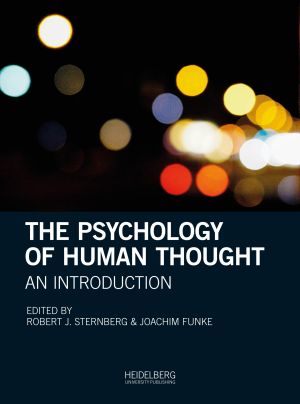Zitationsvorschlag
Forgas, Joseph: Affect and Thought: The Relationship Between Feeling and Thinking, in Sternberg, Robert J. und Funke, Joachim (Hrsg.): The Psychology of Human Thought: An Introduction, Heidelberg: Heidelberg University Publishing, 2019, S. 341–361. https://doi.org/10.17885/heiup.470.c6681
Lizenz (Kapitel)

Dieses Werk steht unter der Lizenz Creative Commons Namensnennung - Weitergabe unter gleichen Bedingungen 4.0 International.
Identifier (Buch)
ISBN 978-3-947732-33-3 (PDF)
ISBN 978-3-947732-34-0 (Softcover)
ISBN 978-3-947732-35-7 (Hardcover)
Veröffentlicht
31.07.2019
Affect and Thought: The Relationship Between Feeling and Thinking
- Affective states represent evolutionary adaptation and their main function is to inform / alert the organism and to promote appropriate responses in a given situation.
- Affect can influence thinking through multiple mechanisms, influencing both the content and valence of what we think, as well as how we think (information processing effects).
- Affect congruence in memory, attention, associations and judgments is typically produced by the selective priming of affect-congruent associations.
- More open and productive thinking tends to magnify affect infusion.
- Positive affect tends to promote a faster, more heuristic and also more creative thinking style. Negative affect promotes a slower, more attentive and more externally oriented thinking style.
- In some situations, mild negative affect can improve memory and judgments and also produce more effective social behaviors.






